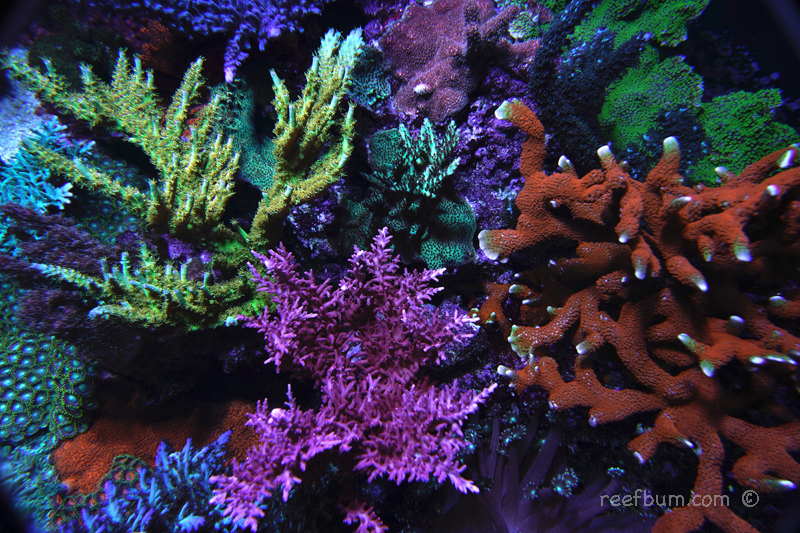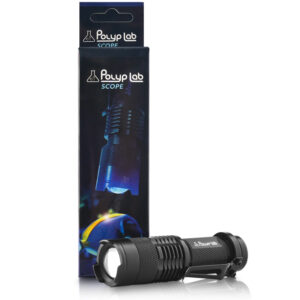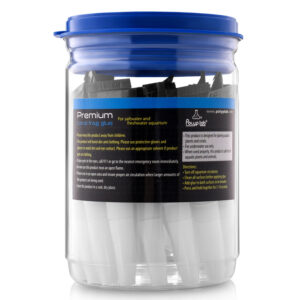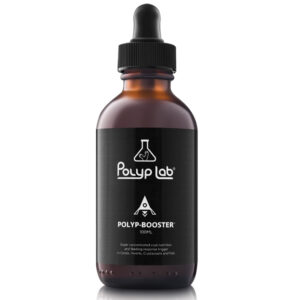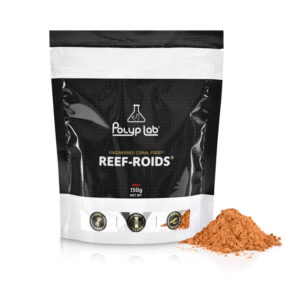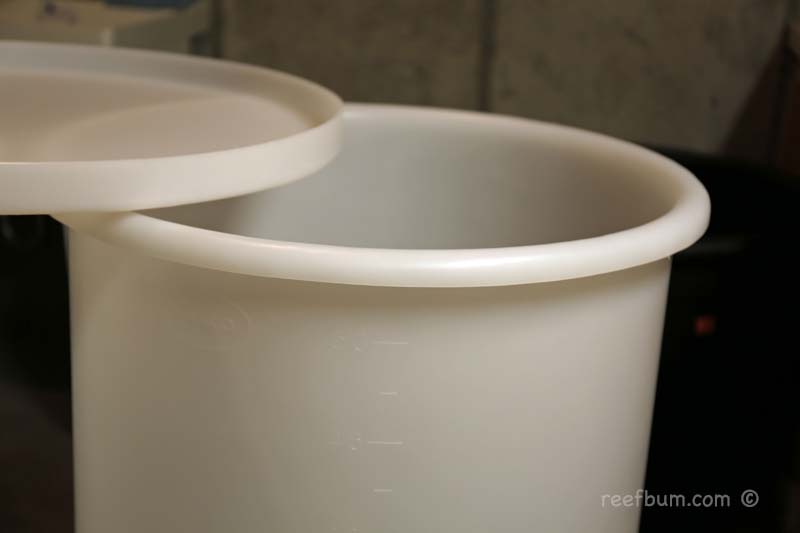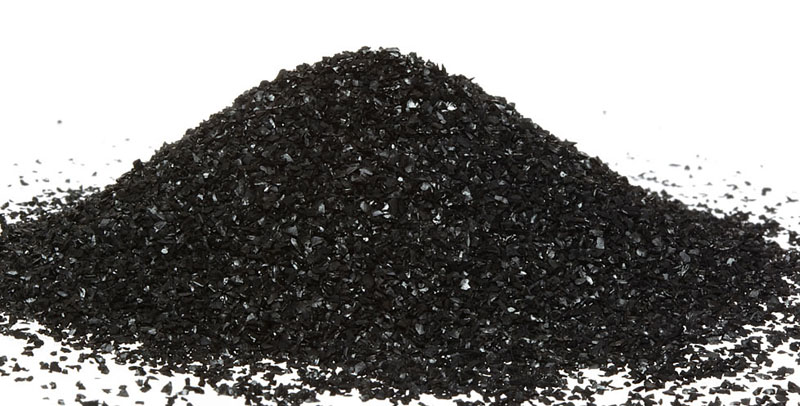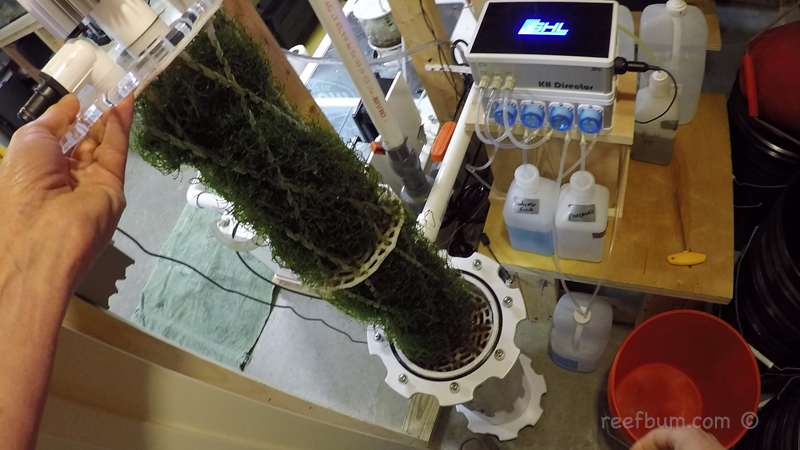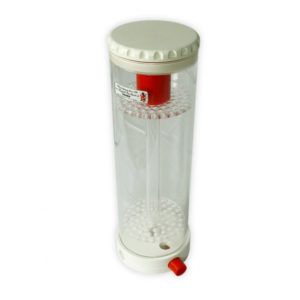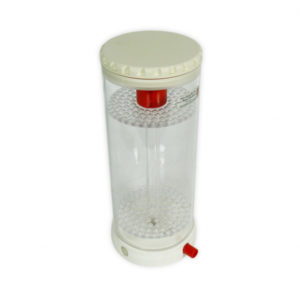It is very important to prevent phosphate from accumulating in a reef tank since high levels will stress out corals and invertebrates and feed the growth of unwanted algae. Corals suffer because high phosphate levels inhibit calcification but some phosphate is required for growth so stripping out all phosphate is also not good. Given this fact, I like to keep a “slightly dirty” tank and strive to maintain phosphates within the .03 to .07 ppm range. The same is true for nitrates. I keep them low (~ 2.5 ppm) since high levels can potentially be detrimental to coral growth.
Methods For Controlling Phosphates
There are several ways to control and remove phosphate in a reef tank. A protein skimmer is one tool for removal so it is important to have one that is reliable. Regular water changes is another means for exporting phosphates. I like to change out 10% of my tank water every week. A third method is to set up a refugium, algae reactor or algae turf scrubber and grow macroalgae, a natural method for reducing phosphates.
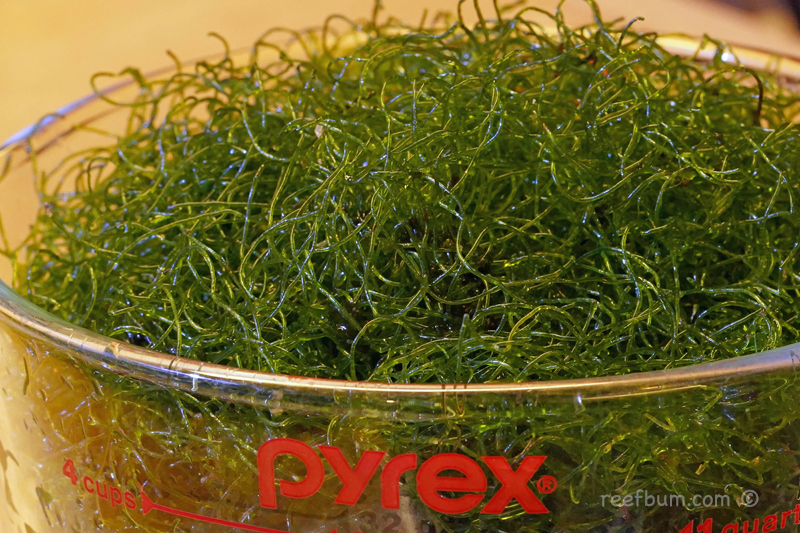
Number four on the list is use of certain calcium and alkalinity supplements such as kalkwasser. These supplements not only help to maintain calcium and alkalinity in a reef tank but they also elevate the pH. A higher pH may help to bind phosphate to the live rock and substrate and prevent it from leaching into the water column.
Using bio pellets is yet another method of removal that promotes the growth of beneficial bacteria that will feed on both nitrates and phosphates. Bio pellets do have the power to strip too many nutrients out of the water, a downside for sure. Dosing bacteria such as Brightwell’s MicroBacter 7 or CLEAN can also lower both phosphates and nitrates.
Using GFO
Finally, phosphates can be removed by using a reactor with a phosphate binding media such as Granular Ferric Oxide (GFO). Reactors are typically fed by a pump in the sump and circulate water through the media in the reactor. A valve is used to regulate the flow rate through the reactor to optimize phosphate removal. A downside with this method is that some media can release impurities into the water. GFO can also bind and remove valuable trace elements.
You do have to be careful when using a phosphate binding media in an established tank with elevated phosphate levels since sudden removal can shock corals. It is always wise to start off with a small amount of media and gradually increase it over time.
Avoid Adding Phosphates
Removal of phosphate is important but a reef keeper should be careful about inadvertently introducing phosphate to a system. You don’t want to add fuel to the fire. Tap water is a good source of phosphate so it is best to use a RO/DI unit to remove it and other impurities in the water. You also need to be careful about phosphate leaching out of certain types of sand and rock. One downside with dry rock versus live rock is the possibility it might leach phosphates.
Overall, phosphate is very important to reef keeping. Problems will pop up if there is too much or none so it is best to stay on top of it to find that happy balance.
Additional Resources
If you would like some help with a new tank build, including help designing a custom aquarium, or help re-configuring your current setup then you can visit this page for more information. And if you are looking to add some equipment, I do sell GHL, Pax Bellum, Reef Octopus Calcium and Kalk Reactors and Royal Exclusiv products, including Dreamboxes, which is the equipment I use and recommend. I also sell Reef Brite metal halide and LED fixtures as well as Maxspect & IceCap Gyres.
As for additional insights and information, please explore my many other reef tank and SPS related articles as well as my YouTube channel. For an even deeper dive into reef tank care you can check out my Reef Keeping Master Class. This online course is an immersive and one of a kind educational tool designed to help reef aquarium hobbyists build and maintain a beautiful SPS reef tank. The course is a series of video presentations with some supplemental video from my YouTube channel. There are also quizzes to help students retain and understand the information presented in the course.
Need some frags…..I can help with that as well 🙂 Please visit my SPS Frag store to see what is available.

